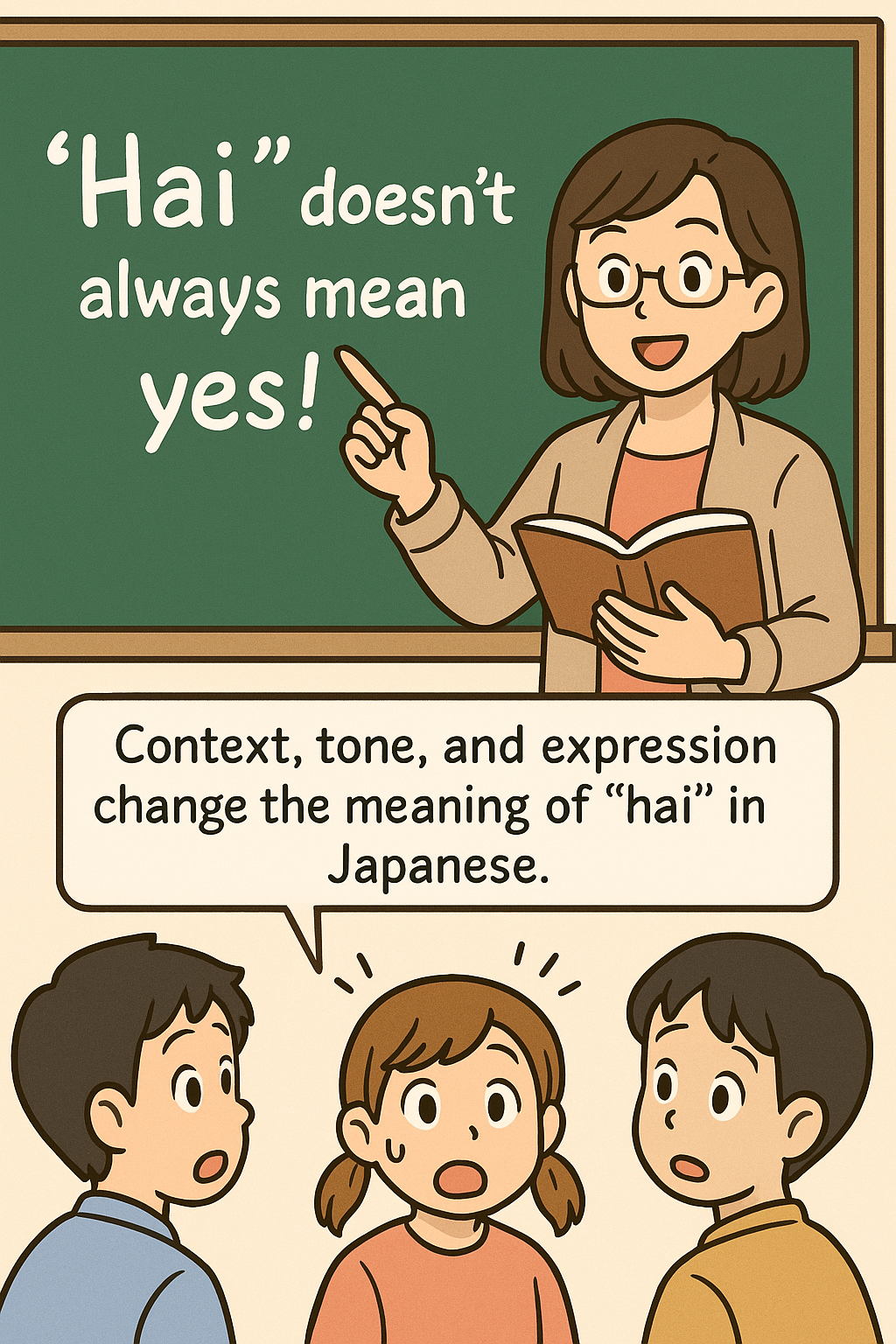はじめに / Introduction
日本語を学んでいると、「はい」は英語の“Yes”と同じ意味だと思いがちです。 しかし、実は日本語の「はい」にはもっと幅広い使い方があります。
Many people learning Japanese believe that “hai” always means “yes,” just like in English. However, in Japanese, “hai” has a much wider range of meanings and uses.

「はい」は同意だけじゃない / "Hai" Isn’t Just Agreement
日本語で「はい」と言っても、必ずしも賛成や同意を意味するとは限りません。 「聞いています」「理解しました」という返事としてもよく使われます。
Saying “hai” in Japanese does not always mean agreement or approval. It’s often used to mean “I’m listening” or “I understand.”
会話例 / Conversation Example
上司:「明日までにこの書類を提出してください。」
部下:「はい。」
Boss: “Please submit this document by tomorrow.”
Employee: “Hai.”
この「はい」は「了解しました」「聞こえました」という意味で、必ずしも“yes, I want to do it”や“yes, I agree”ではありません。
Here, “hai” means “I understand” or “I heard you,” not necessarily “yes, I want to do it” or “yes, I agree.”
「はい」で本当は反対? / “Hai” Can Even Hide Disagreement?
時には、内心では反対しているのに、とりあえず「はい」と返事をすることもあります。 日本の職場や学校では、相手の話をまず受け止めるために「はい」と言う文化があります。
Sometimes, people say “hai” even when they actually disagree. In Japanese workplaces or schools, it’s common to say “hai” first just to show you’re listening and accepting the information.
先生:「宿題をもっと増やします。」
生徒:「はい…」
Teacher: “I will give you more homework.”
Student: “Hai…”
実はうれしくないけど、「はい」と返事することもよくあります。
Even when they’re not happy, Japanese people often reply with “hai.”
まとめ / Conclusion
「はい」は日本語独特の表現で、必ずしも“Yes”とイコールではありません。 文脈や表情、声のトーンによって意味が大きく変わります。
“Hai” is a uniquely Japanese expression. It doesn’t always mean “yes.” Its meaning can change a lot depending on the situation, facial expressions, or tone of voice.
日本語を使うときは、単語の意味だけでなく、その背景やニュアンスにも注目してみましょう。
When you use Japanese, try to pay attention not only to the words, but also to the background and nuance.